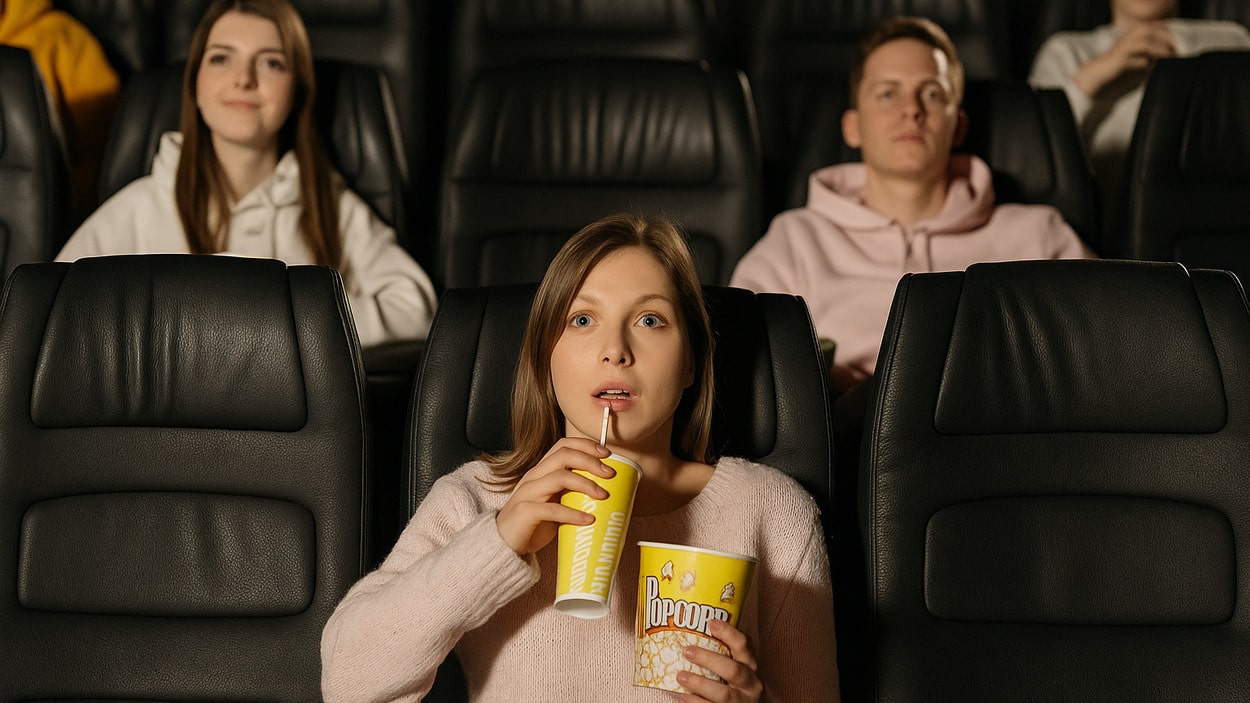Science
Is Water in Space the Rule, Not the Exception? The Mystery of Planetary Birth
24 February 2026

Scientists in Germany just discovered that the power of movies doesn't end when the credits roll. Viewers who watch emotionally moving stories are significantly more likely to take real-world action inspired by what they saw on screen—shifting from simple empathy to tangible civic engagement. Indeed, movies change us when they touch on important issues.
Researchers at the University of Leipzig decided to test whether the deep emotions we experience at the movies actually translate into our real-life choices and behaviors.
To conduct the experiment, they invited three groups of volunteers to participate in a “Themed Evening.” This format combined a feature film and a documentary, both sharing a common topic but generating completely different emotional responses.
For example, one block focused on the illegal trade of dangerous tools, while another highlighted the dramatic stories of people considering self-harm. The researchers wanted to see if this potent mix of fiction and fact could shake the viewer enough to genuinely move them.
Once the lights came up and the strong emotions from the screening hadn’t yet subsided, the researchers approached the viewers with questions. What were they feeling? What were they thinking? Did watching two such different films—yet on the same topic—spur them to action?
Crucially, almost everyone reacted similarly. The results, however, surprised the scientists themselves.
Participants who watched both the feature film and the fact-based program on the same theme were more profoundly moved and emotionally engaged. Most importantly, they demonstrated activity on the subject matter.
They immediately began searching for more information about the themed evening’s topic and even considered specific actions. Which actions? Many volunteers found that movies change us, leading them to sign petitions or declare that they would factor the issue into their voting choices in political elections.
Following a regular screening—which theoretically might have been dismissed as mere entertainment—real-life actions were taken. Instead of passive reflection, engagement appeared.
The key? Emotion. It triggered a powerful sequence: emotion transformed into reflection, reflection into awareness, and that awareness led to a firm decision to do something. Therefore, the more impactful the film, the less likely a viewer is to remain indifferent.
This research, published in the academic journal Sage Journals, shifts the way we think about the value of film. Previously, some believed certain media only served to relax the viewer without a deeper dimension. Now, that assumption seems flawed. Professor Anne Bartsch, one of the lead researchers, elaborated on this topic in an interview with PsyPost.
Some forms of entertainment, it seems, can make a valuable, complementary contribution to political discourse—especially for audiences who rarely access traditional news.
This finding means that if a film touches on real issues and evokes strong feelings, it can become a powerful catalyst for empathy, reflection, and action. Interestingly, the experiment’s hosts noticed something unexpected in the volunteers’ behavior.
Typically, when a global issue moves millions, the conversation migrates to the internet, where users eagerly share their observations. Here, the tendency was different.
The viewers did not participate in thematic online discussions. Instead, they talked about the issue with loved ones privately, or they took tangible actions that extended beyond the digital sphere. This confirms that sometimes the greatest change happens quietly, within the viewer’s mind.
We know from about a decade of research that moving media experiences can stimulate empathy and prosocial behaviors, including political engagement.
— Bartsch adds.
These psychological discoveries provide a powerful tool—not just for ordinary viewers, but for anyone who aims to influence the attitudes of others. And this matters significantly in today’s world. Why?
Many of us today feel fatigued by politics, the noise of the news cycle, and never-ending debates. Understandably, we often stop listening. Yet, sometimes all it takes is a single movie—not a report, not an analysis, not even a documentary—to move us.
Ultimately, emotions, not statistics, are what most often push us to think. This shows that movies change us profoundly in ways statistics cannot.
Read this article in Polish: Jak jeden film potrafi zmienić nasze decyzje? Badacze są zaskoczeni
Science
24 February 2026



Zmień tryb na ciemny